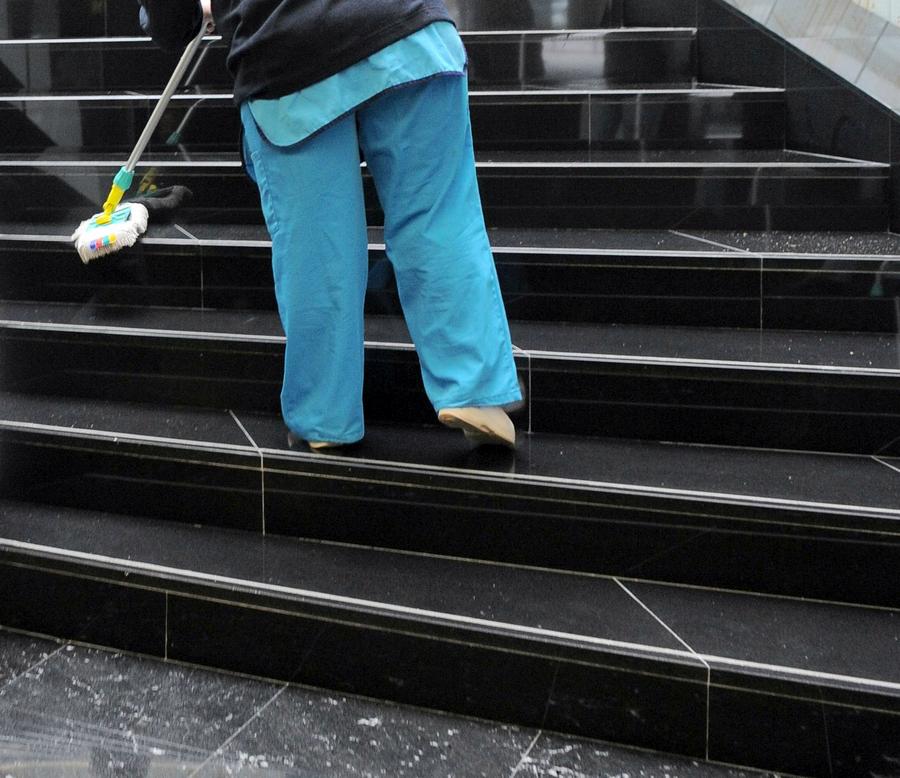
"I worked at least 10 hours a day, sometimes even 16 hours at different locations in Ljubljana. And all that for a minimum wage," says a former employee at a cleaning services company. Her story is just one of the many stories of cleaning ladies, exploited by cleaning companies. The difficult conditions they work in are encouraged by state institutions, which often choose the cheapest service providers in open calls. Sometime the agreed price fails to even cover the actual costs.
The original sin is the “dumping” of prices of cleaning services, is convinced Goran Zrnič from the Counselling Office for Migrants. Public contracting authorities simply opt for the cheapest provider, without considering whether such a price could cover workers’ costs. Another problem is the awarding of contracts to sub-contractors, which means even less supervision over those performing the services. "If the provider performers the service for a minimum price, then one can wonder about the interests of the company and why it would even take on such a job."
The Ministry of Public Administration is aware of the problems that can occur when the choice of service providers is based only on their low price. The ministry says the amendments to the Public Procurement Act, adopted in November, were precisely drafted do the meet this issue. The changes introduced the exclusion of unusually low offers if they failed to respect labour, social and environmental legislation. The law also demands the exclusion of service providers who fail to pay for social contributions, who commit offences connected to worker salaries for a second time, and the exclusion of those providers which have been convicted for violation of worker rights.

































































